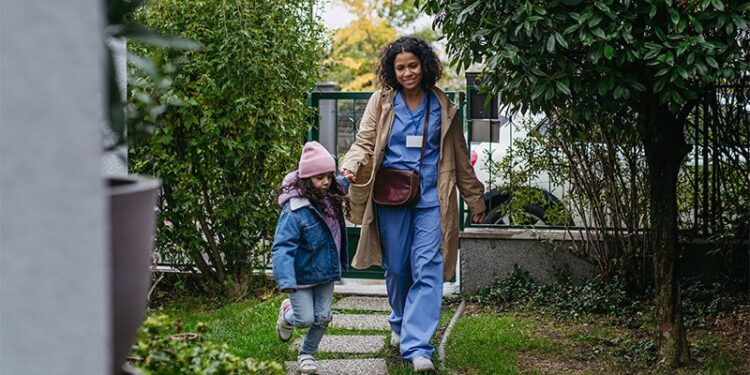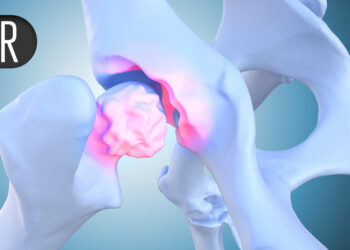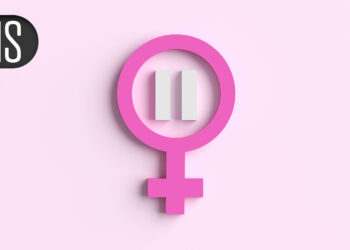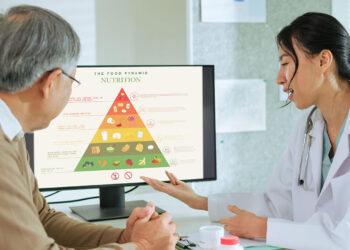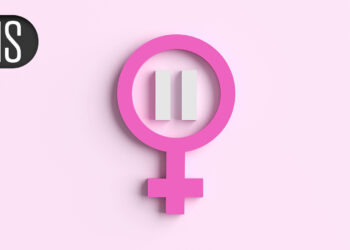The medical knowledge accumulated during training can be invaluable when facing pregnancy and the arrival of a child — but it can also feel like a burden. “The big problem is that when we get pregnant, we know everything that could go wrong. At first, I was more worried,” said Andressa Heimbecher, 44 years old, an endocrinologist and metabolic specialist in São Paulo, Brazil.
Heimbecher had her first daughter at 39 years and her second at 42 years. As an older expectant mother, she was acutely aware of the risks for genetic abnormalities and malformations. “I underwent every imaginable test, but I realized that, even being a doctor — or perhaps because of it — I wasn’t the one who should take care of myself. I chose extremely qualified colleagues and simply entrusted my care to them.”
In the end, she said her medical knowledge made her more attentive and appreciative of proper care. “Often, those without medical knowledge either hand everything over to others or completely ignore potential issues. In my case, I was able to trust my colleagues, and since it was a field I understood, I could manage my concerns well,” she explained, referring to her gestational diabetes during her second pregnancy.
The main lesson she learned: one cannot be their child’s doctor. “Motherhood reminds us that, even with medical knowledge, you are only a parent. You are not — and should not be — your child’s doctor. It’s essential to surround yourself with competent professionals you trust,” she said.
At the same time, her medical expertise proved lifesaving when her daughter was diagnosed with a rare condition at age 2: Kawasaki disease. “It was my medical training that allowed me to recognize the illness even before the pediatrician diagnosed it,” she recalled. “So yes, being a doctor helped, but you have to find balance, or you go crazy.”
‘I Needed Other Professionals to Care for My Daughter’
Marcela Amaro, 39 years old, a pediatric endocrinologist in São Paulo, had a similarly intense experience. Shortly after her daughter’s birth, she noticed a tongue-tie. “Right after delivery, I saw she was having trouble breathing. I told the pediatrician, ‘She’s tired; it might pass.’ And I handed her over calmly because I knew what was happening,” she recalled.
Her daughter experienced some respiratory discomfort, relatively common in newborns. “She stayed on oxygen briefly and soon returned to me. Perhaps if I weren’t a doctor, I wouldn’t have noticed these things. But at the same time, I felt like I was losing my mind. Instead of marveling at my baby, I was focused on her tongue-tie.”
That attentiveness proved crucial later. Amaro noticed developmental delays in the first months and years of her daughter’s life. What seemed excessive to some was confirmed: her baby was diagnosed with a rare disease after extensive testing. “My experience was very atypical. I had to deal with serious issues that weren’t under my control. And here comes another challenge: being both a doctor and a mother at the same time.”
One of her biggest lessons was realizing she couldn’t do everything alone. “There was a moment when I understood I needed to delegate — that I needed other professionals to care for my daughter. Mother is mother; a doctor is someone else. Once I delegated Clara’s medical care, I felt more at ease. That’s the only way not to lose it.”
Even in simple situations, such as giving an antibiotic or antipyretic, Amaro sees the value of a second opinion. “We have a mother bias, and the fear of making a mistake with your own child is enormous. Because if we fail, the guilt lasts forever.”
“In reality, serious conditions are less frequent. Most of what we see are common illnesses. Most of my pediatrician friends who are mothers are calm, but for everything I went through, I became more worried than I imagined. Even so, I learned a lot and continue learning from my daughter every day.”
NICU Experience Led to a Book
Izabella Cristo, 39 years old, a surgeon in São Paulo, experienced a high-risk pregnancy that required hospitalization and a NICU stay for her premature son. “When I got pregnant, I weighed 107 kg, considered morbidly obese. I developed oligohydramnios, had to stop working in the last trimester, and was hospitalized before delivery. My son was born at 33 weeks but had a mild course and didn’t require intubation,” she said.
Her experience in the NICU inspired her book Mãezinha, in which she shares stories of other mothers. “At first, it was my story. Then I started creating characters and distancing myself.”
With one foot in literature and another in medicine, she says she achieved a balance not all mothers manage. “It’s like having two filters: my surgeon’s eye, which is more rational, and the medical literature eye, which gives me critical distance. That helped me not to lose it.”
However, she noted that technical knowledge can also generate hyper-vigilance, placing excessive responsibility on mothers. “Often, this pressure doesn’t come from the doctor herself but from society’s brutal expectations.”
And that, she said, changed everything. “I began to understand how much society demands from a mother. Guilt, the expectation of perfection, and excessive care often don’t come from the woman herself but from outside. Studying, writing, and listening to other mothers helped me understand this, and it’s what I try to deconstruct in the book.”
What Changed After Motherhood?
The three doctors reflect on how motherhood transformed their lives and offer advice for those planning to have children.
Cristo emphasized perspective and self-compassion: “Don’t be too hard on yourself. Parenting isn’t an individual mission. We need to demand that society — not just individuals — support families. Health, education, insurance, and assistance. We cannot romanticize maternal overload.”
She noted that healthcare professionals often feel compelled to manage everything. “We are used to providing care, taking initiative, helping, but it’s essential to understand that we will need support — and to know how to accept it.”
For Cristo, the key is recognizing one’s limits. “Even if you prepare, situations will arise that are beyond your control. Do your best, but don’t fall into the trap of perfection,” she added.
Amaro said that motherhood has deepened her empathy for patients’ families. “Your perspective changes. You truly understand what a family is feeling. When you see a mother with a crying child throwing a tantrum in the supermarket, you recognize yourself. One look is enough. We understand each other.”
She added that doctors who are parents take parents’ concerns more seriously. “If a mother says something is wrong with her child, even if it seems exaggerated, we must investigate. Because mothers can sense it.”
For Heimbecher, one of the most profound lessons of motherhood has been understanding humanity. “When we become mothers, the greatest fear is losing a child. I never feared anything before — I was fearless, traveled the world — just didn’t go rappelling. After having a child, you have two great fears: losing your child and not being there for them.”
She said this perspective has reshaped her work as a physician. “Before, when a mother came into my office with three children, I thought, ‘My God, this is going to be chaotic.’ Today, I change diapers on the exam table, see patients with babies in my arms, and support mothers in menopause, sick fathers, and teenage children.”
“Everyone was a baby once. Everyone has a mother. Everyone is someone’s child. When motherhood touches you, you start reflecting that care deeply in the clinic,” Heimbecher explained.
She concluded, “I realized that if I am not with my children, I need to be happy at work. I need to provide quality and humane care; otherwise, it’s not worth it. That is the time I am giving to the world, giving back the blessing of being a mother.”
This story was translated from Medscape’s Portuguese edition.
Source link : https://www.medscape.com/viewarticle/how-being-mother-changes-your-medical-lens-2025a1000lv3?src=rss
Author :
Publish date : 2025-08-19 10:53:00
Copyright for syndicated content belongs to the linked Source.

